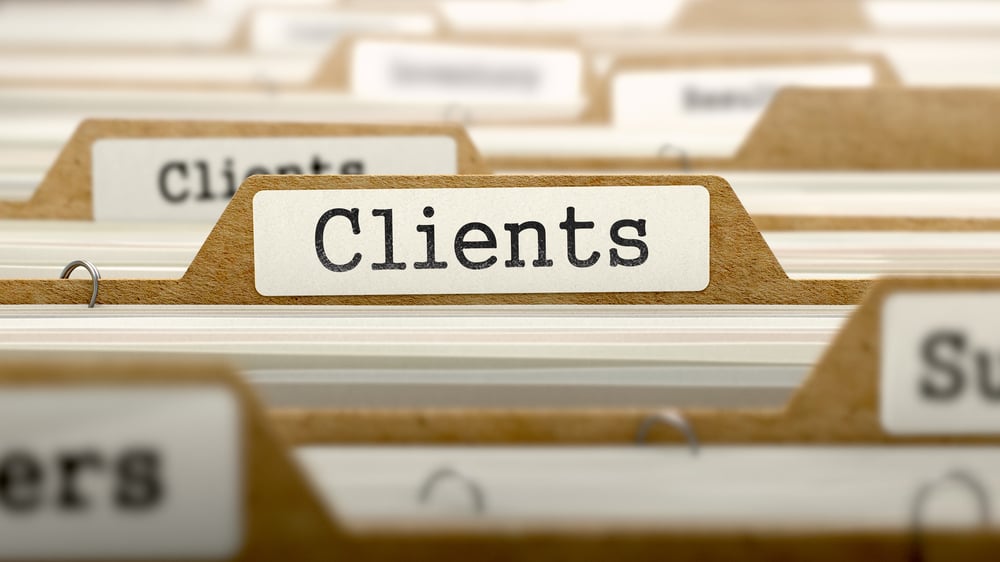3 min read
Considering Limited Scope Representation? Don’t Play Fast and Loose with the RPCs.
Let’s review the basics. ABA Model Rule 1.2 (c) allows a lawyer to limit the scope of the representation if the limitation is reasonable under the...
We've crafted solutions tailored to your firm
The world of insurance for law firms can be confusing, and difficult to navigate. We've created this glossary because these common insurance terms should be easy to understand.
4 min read
 Mark Bassingthwaighte, Risk Manager
:
Posted on November 20, 2024
Mark Bassingthwaighte, Risk Manager
:
Posted on November 20, 2024

I have a confession to make. I am a procrastinator. If there is a Procrastinator’s Anonymous, I’m pretty sure they would accept me as a card-carrying member. Truth be told, I occasionally think about seeing if such an organization actually exists. Unfortunately, I’ve have yet to muster the motivation to do so. I have a good excuse however! I don’t consider this a priority because I’ve long since learned that I tend to perform well under the gun. In fact, some of my best work often occurs when I’m working under a time crunch. I am able to produce when I must. Even better, I like the feeling of satisfaction that I get when it’s all over having met a very tight deadline with a job well done. It feels good. I have earned my place. So why is there a voice in my head that still says, “so not good?”
The answer is this. Deep down I know that the satisfaction I feel is due to a false sense of security. This is the dark side of procrastination. I’ve pulled it off at the last minute so many times before that I’m certain I can do it again, and many times I do. Of course, this can only happen if no unforeseen circumstances arise; and note that I have not shared any stories of when I didn’t pull it off. I assure you; I have them.
Now, if you’re starting to ask yourself "what does all this have to do with me," listen up. The fallout from the procrastinating I do could be anything from having to deal with some embarrassment, asking for an extension, or accepting that I screwed up and doing the best I can under the circumstances. If you are a lawyer in practice, however, the fallout from your own procrastination could be far more severe.
I’ve heard it said that procrastination is like a silent saboteur lurking in the shadows of productivity. As a lawyer, I know that we all take pride in our ability to resolve complex legal matters, meet deadlines, and deliver an impeccable work product. As a risk manager I also know that behind closed doors many lawyers grapple with the insidious habit of procrastination. Trust me, I get it. Procrastination appears to offer a temporary reprieve from the chaos; but see the trap for what it is. It’s an illusion, and once that illusion passes, the realization that it’s time to scramble and play catch-up can hit fast and hard.
Let’s also remember what Rule 1.3 (a) of the ABA Model Rules of Professional Conduct and one of this rule’s Comments have to say. The rule states: “A lawyer shall act with reasonable diligence and promptness in representing a client.” Comment [3] to this rule reads “Perhaps no professional shortcoming is more widely resented than procrastination. A client’s interests often can be adversely affected by the passage of time or the change of conditions; in extreme instances, as when a lawyer overlooks a statute of limitations, the client’s legal position may be destroyed. Even when the client’s interests are not affected in substance, however, unreasonable delay can cause a client needless anxiety and undermine confidence in the lawyer’s trustworthiness.” Are things becoming clear?
The consequences of procrastination can be far-reaching. It can and will lead to rushed work, missed deadlines, inadequate preparation, and unhappy clients. If left unaddressed, chronic procrastination can even lead to stress and burnout, further impairing one’s ability to perform effectively.
Procrastination can be a dangerous choice, particularly in the practice of law, and yet it is so easy to do. The reasons behind it run the gamut. A lawyer may assume that someone else is taking care of the matter, may not have a complete understanding as to how to best handle a matter, or may simply have too many matters open. They might be afraid of imparting bad news, concerned that their in over their head, trying to avoid having to deal with a “problem client,” or hoping that, with enough time, the problem will eventually go away. It might be that a matter has been set aside so long that it is now forgotten about or perhaps there is an inability to appropriately prioritize work. For others, procrastination might arise for reasons that are more personal. A lawyer might be depressed, burned out, trying to deal with a personal crisis, or even impaired, any one of which might leave him with little to no energy or ability to get his work done on time.
Again, these examples all point to the dark side of procrastination. Anyone could easily rationalize their way through them to reach a false sense of security. And while I can admit that for most of us things do tend to work out just fine most of the time, meaning the problem did go away, the difficult conversation with the client eventually occurred, someone else took care of it, or you benefited from having an extremely competent staff person make certain you finished the work on time. But what if it doesn’t work out fine? Those are the times we hear about here at ALPS and it’s always because there was an unintended consequence, and things went south on a matter after something unexpected happened and time ran out.
The good news is that there are a number of strategies you can implement to overcome this silent saboteur. Common approaches include learning to set clear goals and to responsibly prioritize tasks; utilizing a time management technique such as time blocking; delegating lower-value work so you can focus on the work that truly requires your judgement and expertise; tackling daunting tasks by breaking them down into smaller, more manageable tasks; creating a conducive work environment by minimizing distractions; sharing your goals and progress with someone who can help you stay accountable; and making procrastination less enticing by prioritizing selfcare in order to alleviate stress and sharpen your focus.
Yes, procrastination may be a formidable adversary, but it is one that can be conquered. Recognize procrastination for what it is, a decision to put off until another day something that can and should be done now, and then decide to do something about it. Of course, the battle isn’t going to be won in one day. Focus on the small wins and keep going after them because after each one you’ll be one step closer to winning the war.
Mark Bassingthwaighte, Esq., serves as Risk Manager at ALPS, a leading provider of insurance and risk management solutions for law firms. Since joining ALPS in 1998, Mark has worked with more than 1200 law firms nationwide, helping attorneys identify vulnerabilities, strengthen firm operations, and reduce professional liability risks. He has presented over 700 continuing legal education (CLE) seminars across the United States and written extensively on the topics of risk management, legal ethics, and cyber security. A trusted voice in the legal community, Mark is a member of the State Bar of Montana and the American Bar Association and holds a J.D. from Drake University Law School. His mission is to help attorneys build safer, more resilient practices in a rapidly evolving legal environment.

3 min read
Let’s review the basics. ABA Model Rule 1.2 (c) allows a lawyer to limit the scope of the representation if the limitation is reasonable under the...

Declination letters, also referred to as non-engagement letters, are those letters that say, “thanks, but no.” Some lawyers use them religiously and...

3 min read
Boundaries are important. In sports, they define the area of play. In real estate, they designate what one owns. And in personal relationships, they...